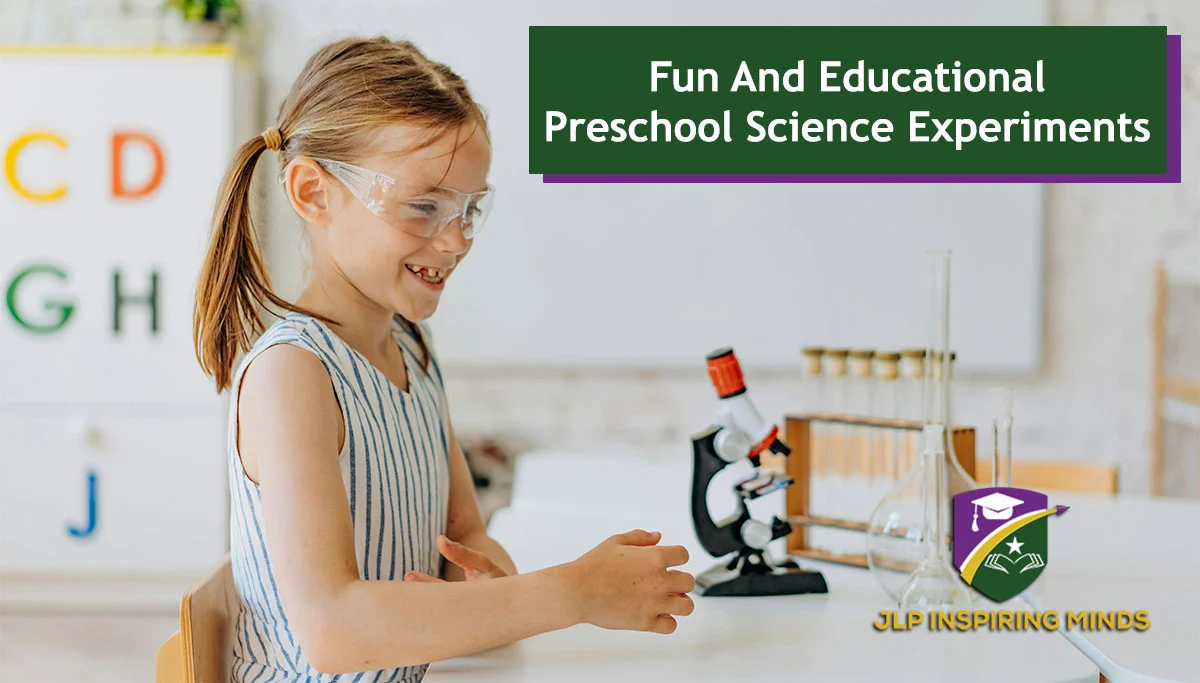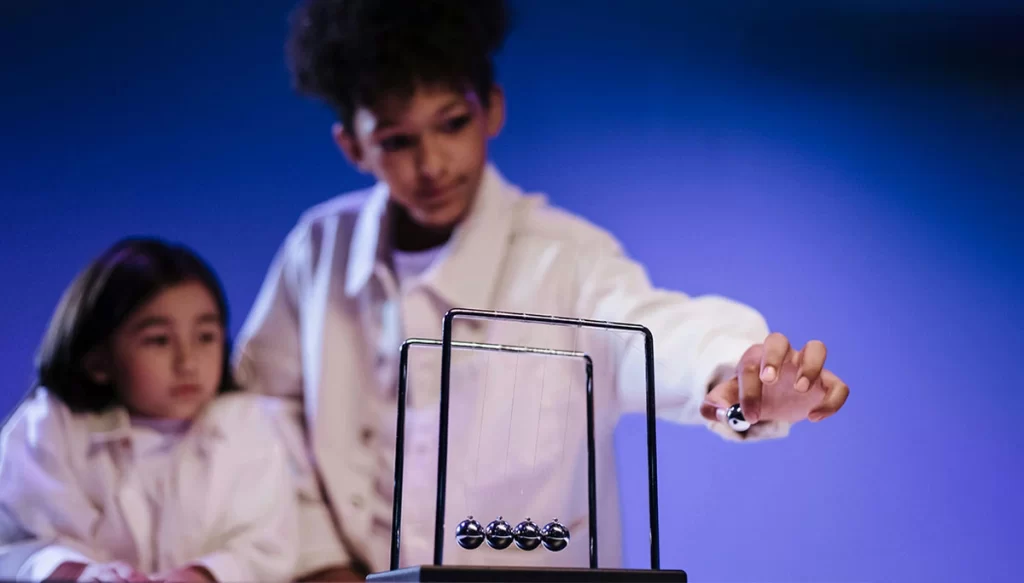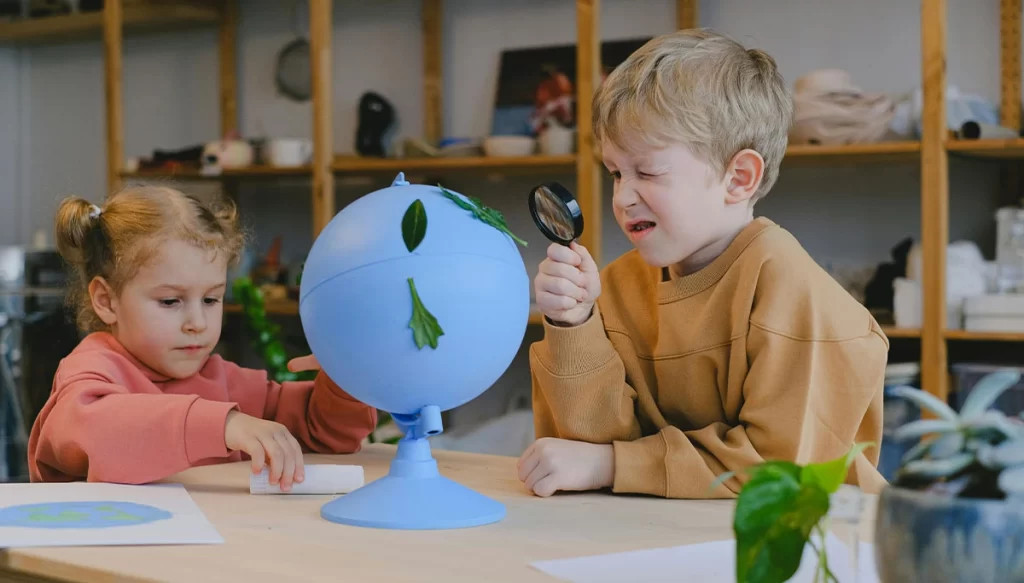
Science is all around us, just waiting to be explored. Nurturing a child’s natural curiosity from an early age helps them discover how things work and sparks a lifelong interest in science. The fun and exciting science experiments below are engaging, easy to set up, and tailored for preschool children.
Early Learning: The Wonder Of Science

When teachers are passionate about what they teach, they naturally inspire their students to share that excitement. At Inspiring Minds Preschool, one of our core goals is to inspire children with a love of learning that lasts a lifetime. And when it comes to science, the excitement is undeniable, with added benefits for education.
Introducing science at a young age helps children develop essential skills such as observation, cause-and-effect reasoning, and prediction. These experiences stimulate their senses and activate feel-good hormones like oxytocin, dopamine, and serotonin. Early exposure to scientific concepts also sets the foundation for later understanding of subjects like life science, chemistry, and biology.
Here are some fun and educational science experiments perfect for preschoolers:
1. Sink Or Float?
For this experiment, you’ll need a large bucket or two and a variety of objects. Make sure you have some that will float and some heavier items that will sink.
Fill the buckets with water and let your preschooler guess if each item will float or sink before dropping it in. This experiment helps teach the concept of density and buoyancy as children observe the differences between heavier and lighter objects.
2. Baking Soda & Vinegar Volcano
Create a mini volcano using baking soda, vinegar, a plastic cup, a large tray or dish, and food coloring (optional). This experiment demonstrates the reaction between a base (baking soda) and an acidic (vinegar), producing carbon dioxide – the same gas we exhale.
All you need to do is put the cup in the center of the dish, add a few teaspoons of baking soda, put some of the food coloring into the vinegar in a separate container, gently pour it over the baking soda, and watch the bubbly eruption!
3. Magic Milk Experiment
Introduce preschoolers to chemistry with this colorful experiment. This experiment covers the interaction between acids and bases as well as gas omission. You’ll need whole milk, food coloring, dish soap, cotton swabs, and a shallow dish.
Simply pour a small amount of milk into the dish – enough to cover the bottom surface area. Add a few drops of food coloring spaced apart. Dip your cotton swab into the dish soap and touch the milk near the food coloring drops to see it swirl and move the color in the milk! The dish soap will reduce the surface tension of the milk and the color will intersect with the fat molecules creating a fun pattern in response. This visually exciting activity demonstrates how molecules interact and form patterns.
4. Rainbow In A Jar
This beautiful experiment teaches children about liquid density and how liquids behave differently when they interact with each other. You will need a tall, clear jar, honey, dish soap, rubbing alcohol, water, vegetable oil, and food coloring.
Add a few drops of different food coloring into each of the three liquids separately (except the honey). Slowly pour the honey into the jar and make sure it covers the bottom. Then carefully pour the dish soap over the honey. Add the colored water on top of the dish soap in the jar, and then add the vegetable oil on top of the water. Add the rubbing alcohol on top. Each liquid, due to its density, will layer on top of the other, creating a stunning rainbow effect that will amaze preschoolers.
5. Dancing Raisins
Explore buoyancy and gas interactions with just a glass of carbonated water and raisins.
Pour the carbonated water into a glass, and then drop in a few raisins to see what happens. The bubbles in the water attach to the uneven surface area of each raisin, causing it to bounce around in the glass and sink down once the bubbles pop. It’s a simple yet fascinating way to demonstrate carbonation.
These experiments not only entertain young minds but also introduce key scientific principles.
Encourage hands-on exploration, problem-solving skills, and critical thinking to lay the groundwork for future learning in STEM fields.
Inspiring Minds Private Preschool, Tamarac

At Inspiring Minds Private Preschool in Tamarac, we are committed to providing a holistic learning experience. If you’re looking for a preschool that nurtures a love of learning and supports your child’s development, contact us online to schedule a tour or give us a call today at 954-933-2982.
